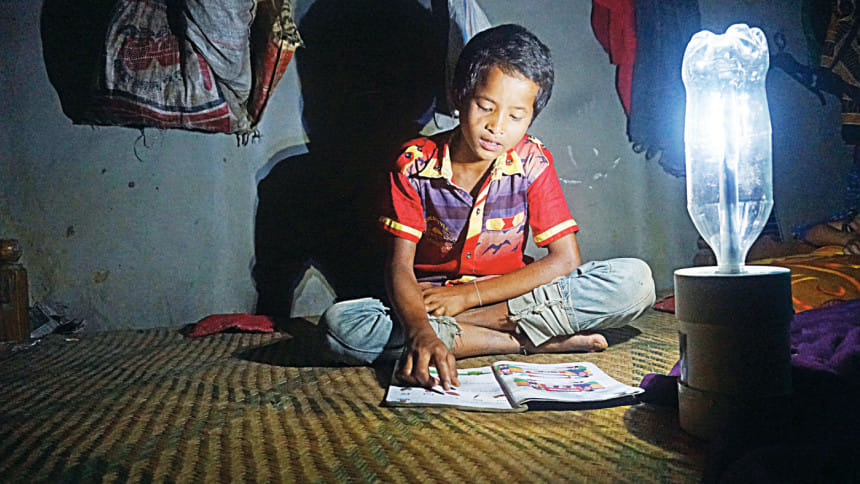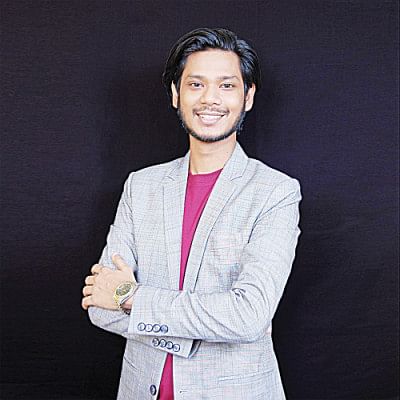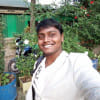Lighting up lives through eco-friendly practices

Shanjidul Alam Seban Shaan, founder of EcoVation Bangladesh (formerly known as Liter of Light), received the GEORGE H.W. BUSH Points of Light Awards' Inspirational Honour Roll.
He founded EcoVation in 2014. The organisation aims to address issues like sustainable development goals, climate change, renewable energy and plastic population on a grassroots level through different eco-friendly projects and initiatives.
"I watched a video on YouTube where a 60-voltage lamp was created using a plastic bottle and water, which inspired me to try it. I was surprised to see their method works," shares Shaan.
"30 million people in Bangladesh have zero access to electricity and about 18.5 million of these people use toxic kerosene lamps," points out Shaan. "Every year, the nation is burning about 2,000 million litres of kerosene, producing above 45,000 metric tons of carbon."
Initially, EcoVation ran a pilot project at a remote village with around 60 plastic water bottle lights, but the lights showed many issues like water leakage and inadequate sealing. "We stopped that project and started researching a light that was eco-friendly, easily repairable, easily assembled, and uses cheap easily available materials," says Shaan.

"We came up with a solution using a plastic bottle, bamboo, solar panel, battery, and our organisation's circuit. We made two light designs, including affordable indoor lamps and streetlights for remote areas."
Shaan was the recipient of the Youth CO:Lab Startup Award in 2020, organised by United Nations Development Programme (UNDP) and Citi Foundation.
Under their charity initiative 'Project LightGiver', EcoVation surveys coastal areas, slum areas, remote villages, and refugee camps to provide lights at every household.
"We find sponsors for this charity project and have our volunteers make lamps and streetlights under the supervision of our engineering team. Then, they visit the sites for distributing the lights for free to the locality," shares Shaan.
Over the last few years, EcoVation's projects contributed to reducing 2,750 metric tons of carbon emissions.
"Our lights use plastic bottles as the cover, which helps upcycle the non-recyclable plastic," adds Shaan. "So far, we have provided our lights to 90,000 people, including families in Rohingya refugee camps. We also train our volunteers on creating solar products."
Recently, under 'Project SolarPrenuer', in partnership with Dutch INGO ICCO Cooperation and with funding from German GIZ and ACT Alliance, EcoVation volunteers taught some youths of Rohingya camps to create solar products to make a living for themselves.
They also partnered up with UN agencies to implement large-scale interventions. "Solar systems in Bangladesh are very costly because of inadequate solar companies and lack of skilled workforce in solar technology," says Shaan. "We are trying to fill the gap by producing solar-engineers."
EcoVation's 'Project Anti-Plastic' is set to reduce the annual 8,000 metric tons of plastic wastage of Bangladesh. They are also training underprivileged youths to make household clay and bamboo products as plastic alternatives and recycle plastic materials into eco-friendly bricks.
Their 'Project Bishuddha Pani' offers free water purification systems in schools, madrasas, mosques, and public community places to ensure safe water for free. "This project started with the biggest Rohingya camp in Bangladesh, where we installed solar-powered water purifiers at different spots of the community," adds Shaan.
EcoVation also trained underprivileged women to make eco-friendly sanitary napkins, and provide them with market linkage under 'Project MyPad' as part of livelihood interventions. "The cheap and reusable napkins are the women's income source as well," asserts Shaan.
Moving forward, EcoVation plans to establish two social enterprises for bamboo and clay products as well as cloth-made reusable sanitary napkins.
"In the last six years, we have saved up to BDT 30 million in energy cost, and our beneficiaries have saved nearly BDT 15,000 annually by using our lights," concludes Shaan.
The author is a freelance journalist. Email: [email protected].

 For all latest news, follow The Daily Star's Google News channel.
For all latest news, follow The Daily Star's Google News channel. 



Comments